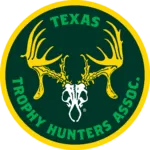
Boone and Crockett Club, Leupold Fund Research to Establish New Poaching Deterrents
MISSOULA, Mont. – Poaching, the illegal killing of game animals and other wildlife, is a serious problem and a crime. The targeting of trophy, big game animals is a growing concern. Protecting, conserving and regulating wildlife is becoming increasingly challenging, especially with the value of trophy animals on the rise and advancements in technology which give poachers an advantage over wildlife resources and enforcement actions.
However, a new research program looks to examine the possibility of higher fines as a deterrent to poaching in an effort to curb wildlife crime and more severely punish those who steal valuable conservation resources. Funded through a partnership between the Boone and Crockett Club and American sporting optics maker Leupold & Stevens, the research program “Poach and Pay” is led by Vickie Edwards, a Boone and Crockett Official Measurer and former wildlife biologist with Montana Fish, Wildlife and Parks. Edwards has extensive experience working with enforcement officers who prosecute poachers.
Edwards will spearhead the research by conducting in-depth interviews with every state wildlife agency and their enforcement divisions. “Our hunting heritage is at risk every time an animal is poached and it is time to get serious about dealing with this on-going problem,” said Leupold’s president and CEO, Bruce Pettet. “The Boone and Crockett Club’s important research is the first step towards developing new tools to deter poaching.”
Ultimately, the data gathered will identify what is and is not working in the fight against poachers, as well as which state agencies are already utilizing the Boone and Crockett Club’s official scoring system to assess higher fines for the poaching of a trophy animal. The program was launched at the Association of Fish and Wildlife Agencies Annual Conference in Tucson, Ariz., last week.
“All wildlife is a public trust resource and poaching strikes at the heart of this important conservation principle,” observes Dave Chanda, President of the Association of Fish and Wildlife Agencies, who went on to note that state fish and wildlife agencies stand for the science-based regulated harvest of wildlife resources.
The Boone and Crockett Club’s big-game scoring system is the recognized standard for evaluating the size of North American big-game trophies, making it a valuable enforcement tool for determining more appropriate penalties for the illegal killing of a mature animal. A handful of states already employ elements of the B&C scoring system to determine a restitution scale for poaching. However, in other states, fines for poaching big-game animals are the same regardless of antler/horn size or trophy score. It is also likely fines themselves have not kept pace with the rising cost of law enforcement and conservation efforts.
Hunters are talking and the Club is listening. A recent survey of hunters, conducted by “Poach and Pay” researchers, found 92.6 percent of respondents in support of higher fines for poaching big game. The same survey identified 88 percent also in favor of even higher fines for poaching trophy big game. “Hunters and poachers are not brothers. Hunters support conservation and work to protect wildlife. Poaching is a crime and was established as such at the earliest stages of the conservation movement,” Boone and Crockett Club president Morrie Stevens said. “For far too long, being convicted of poaching a deer or another big game animal has been akin to getting a speeding ticket in terms of the severity of punishment. Hunters tell us they want to see punishments equal to the crimes.
“The Boone and Crockett Club’s scoring system provides a respected, definitive, well-known criteria for defining a trophy animal and is not subject to the legal clouding employed by those desperate to avoid criminal conviction.”
“Poach and Pay” researchers will survey enforcement officers from every state wildlife agency and publish their findings and recommendations in a report to be distributed to state agency directors. Interviews will take place outside of each state’s general big-game hunting season with the report to be published by summer 2017. State wildlife agency personnel with questions regarding the “Poach and Pay” research program may call (406) 542-1888.



